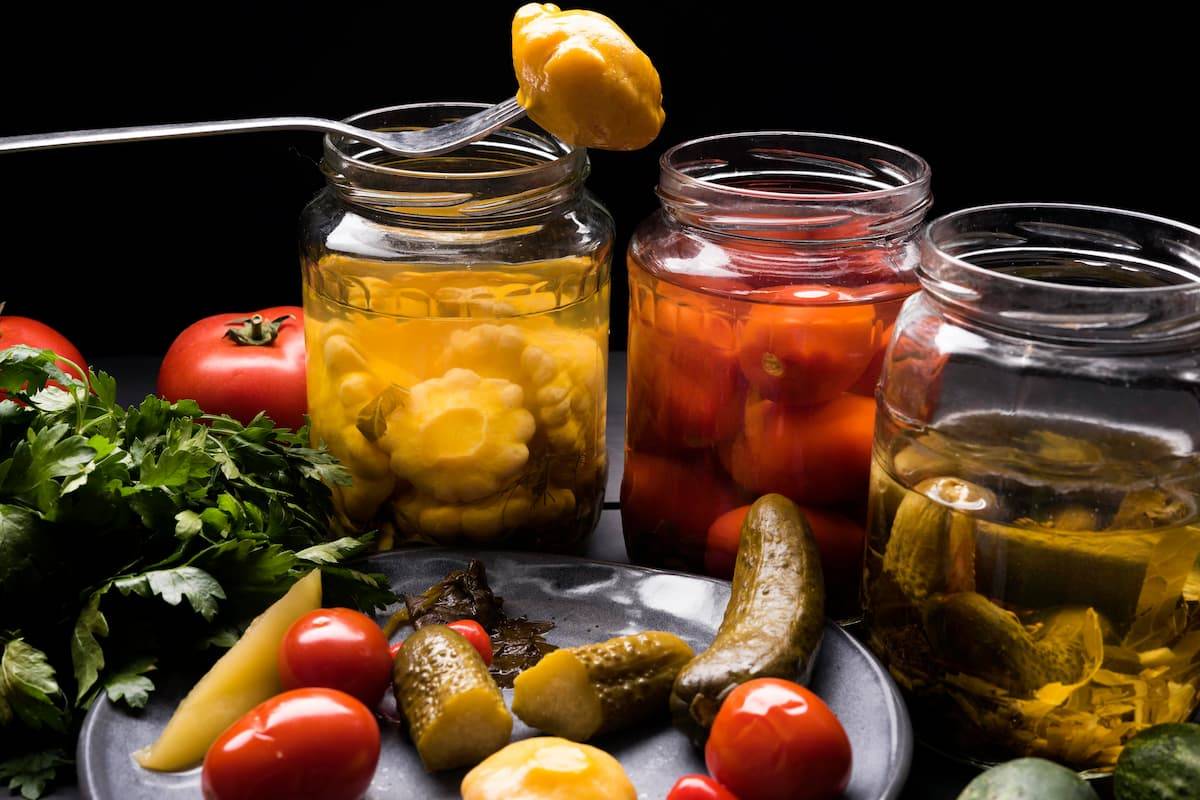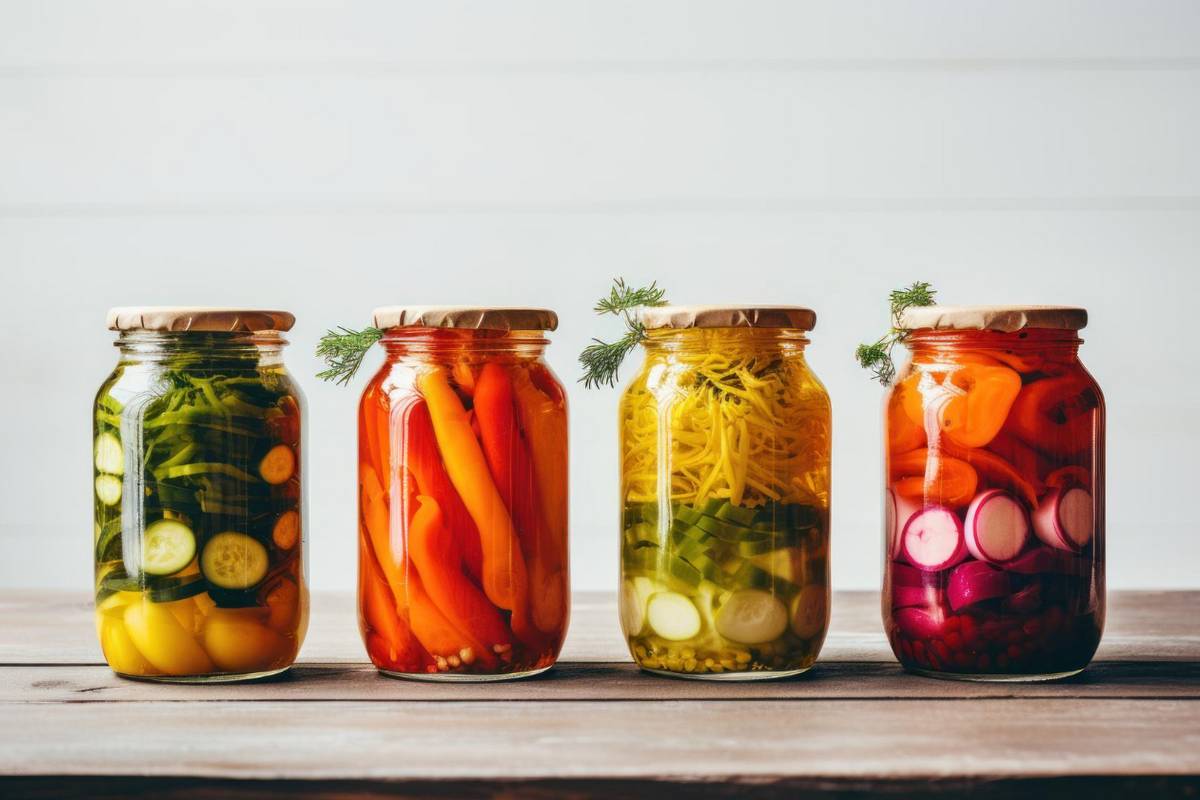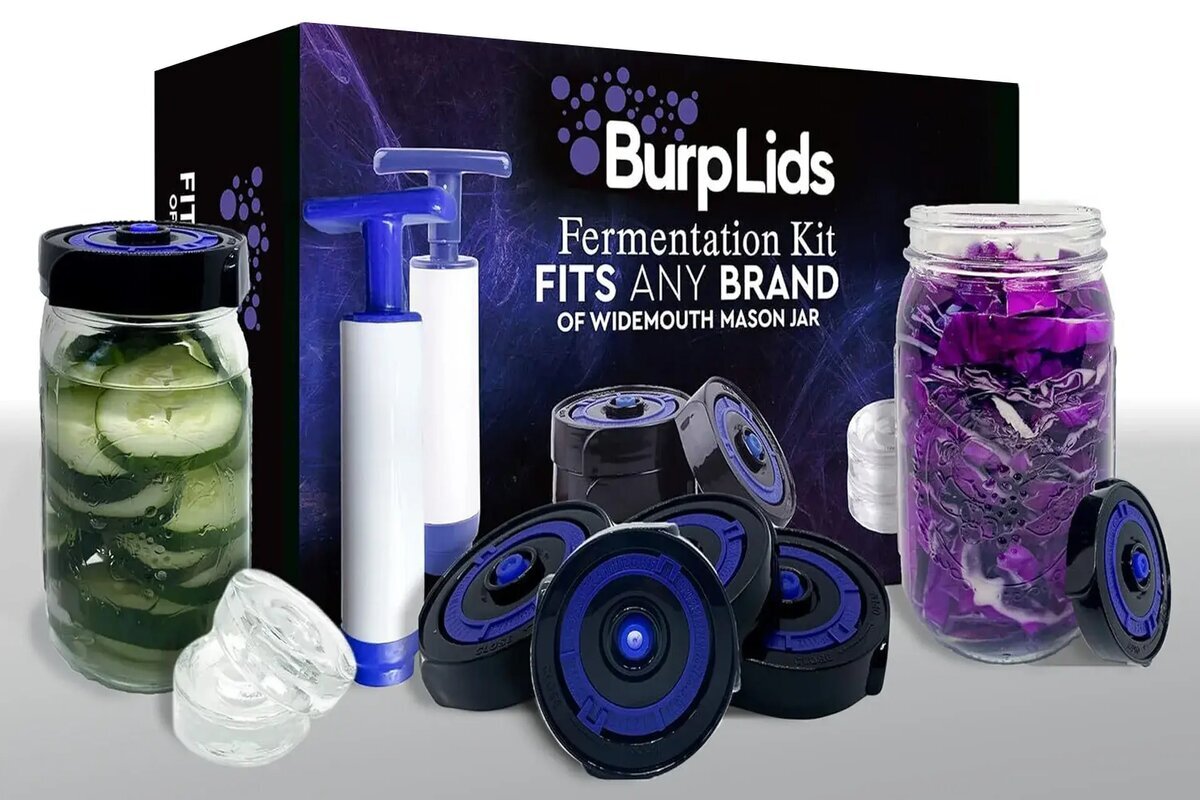From Trash to Treasure: The Astonishing Health Benefits of Fermenting Food Scraps
In the heart of every kitchen lies a treasure trove often overlooked, nestled within the confines of the trash can. It's where Lisa, an eco-conscious food enthusiast, found her goldmine.
Her revolutionary approach to food scraps is not just a win for your health but a giant leap for our planet. This isn't a tale from a bygone era; it's a modern-day marvel of fermentation that transforms ordinary kitchen waste into extraordinary health elixirs.
Let's dive into how fermenting food scraps can bolster your immune system, enhance gut health, and reduce waste, all while adding a burst of flavor to your meals.

The Zero-Waste Kitchen Revolution
The zero-waste movement has gained momentum, urging us to rethink our daily consumption and waste production. Lisa, with her innovative mindset, decided to apply these principles to her kitchen practices.
Instead of tossing out peels, cores, and ends, she saw potential. Fermenting food scraps, a practice as old as time, was her method of choice. This ancient technique not only preserves food but also amplifies its nutritional value, making it a perfect fit for the modern, health-conscious individual.
Why Ferment Food Scraps?
Fermentation is a metabolic process that breaks down food compounds using microorganisms like yeast and bacteria. This process not only extends the shelf life of food but also enhances its nutritional profile, particularly by increasing probiotics, which are beneficial for gut health.
Fermented foods have been linked to improved digestion, strengthened immune response, and even better mental health. By applying fermentation to food scraps, Lisa discovered a way to harness these benefits while adhering to her zero-waste ethos.
How to Start Fermenting at Home

Starting your fermentation journey is simpler than you might think, and it’s incredibly rewarding. Here are a few tips to get you started:
-
Choose Your Scraps Wisely: Not all scraps are created equal. Begin with fruit peels, vegetable ends, and clean, non-meat leftovers. These are rich in vitamins and perfect for fermentation.
-
Prepare Your Vessel: Clean a glass jar thoroughly. This will be your fermentation chamber. Ensuring it's clean is crucial to prevent any unwanted bacteria from spoiling the process.
-
Salt is Your Friend: Salt inhibits harmful bacteria and promotes the growth of probiotics. Create a brine with water and salt, or sprinkle salt directly on your scraps. The rule of thumb is 2-3% salt by weight of the water or scraps.
-
Keep it Submerged: Make sure your scraps are fully submerged in the brine. Exposure to air can lead to mold. Use a fermentation weight or a smaller jar to press down the scraps.
-
Patience Pays Off: Fermentation is not a quick process. Depending on the temperature and the desired sourness, it can take anywhere from a few days to several weeks. Taste test along the way to find your perfect ferment.
The Benefits Unleashed
Fermenting food scraps does more than just reduce waste. It creates probiotic-rich foods that support gut health, which is crucial for overall wellness.
Lisa noticed significant improvements in her digestion and energy levels after incorporating fermented scraps into her diet. Moreover, this practice aligns with sustainable living principles, reducing landfill waste and the carbon footprint associated with food production and disposal.
Embark on Your Fermentation Adventure
Inspired by Lisa's journey? Starting your own batch of fermented food scraps is a small step that can lead to significant health and environmental benefits. Not only does it provide a practical solution to food waste, but it also introduces a world of flavors and nutrients to your diet.
Choose Health and Happiness
As we explore the wonders of nature’s pantry, let's remember that sometimes, the most extraordinary secrets to health and sustainability lie in the simplest of places – our kitchen trash. Embrace the art of fermentation and turn your food scraps from trash to treasure. Together, we can create a healthier, happier life, one jar of fermented goodness at a time.
In our journey towards a more sustainable lifestyle, we shouldn't overlook the importance of choosing foods that support our well-being. Interestingly, alongside the fermenting of food scraps, there are other creative ways to introduce healthful options, like incorporating low sodium fermented foods into our diets. These foods offer the same probiotic benefits without the added salt, making them an excellent choice for those monitoring their sodium intake. So next time you're at the grocery store, consider reaching for these healthier alternatives to complement your eco-friendly kitchen practices.
Craft Your Health, Cultivate Your Life,
Dawn
 Plastic BurpLids® Curing Kit
Plastic BurpLids® Curing Kit
 BurpLids® 12 Pack Curing Kit
BurpLids® 12 Pack Curing Kit
 BurpLids® 14 Pack Curing Kit
BurpLids® 14 Pack Curing Kit
 BurpLids® Pack Of 4 Fermentation Kit
BurpLids® Pack Of 4 Fermentation Kit





